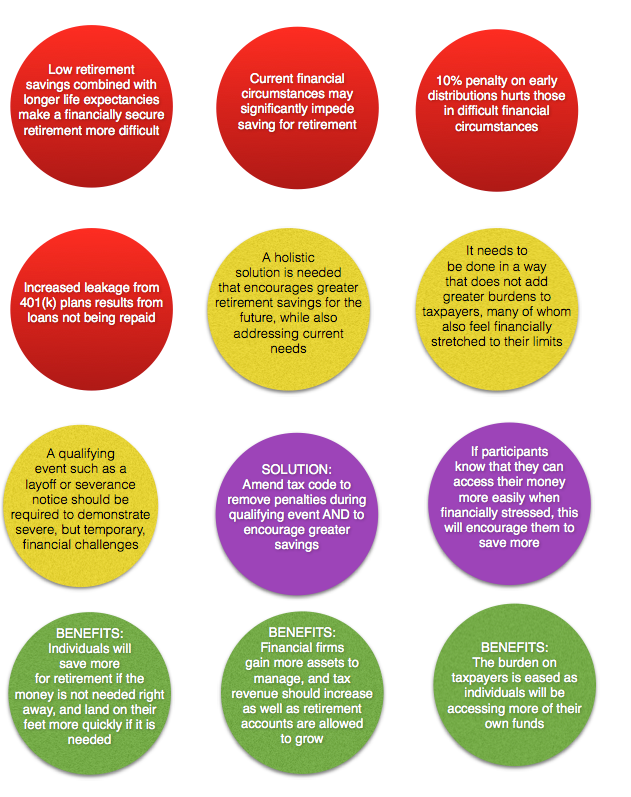 We cannot ignore the present when saving for the future. Likewise, we cannot ignore the future when dealing with the present. A recurring theme on this blog has been that people do want to do a good job in saving for retirement, but there are major obstacles into making this vision a reality. Two recent studies seem to concur with this hypothesis. The Investment Company Institute (ICI) reports that workers do in fact value their defined contribution/401(k) plans and the related tax-deferral advantages, even for those who are not contributing. HSBC points out that various life events play a significant role in interfering with the growth of retirement accounts. The ICI study, American Views on Defined Contribution Plan Saving. found that:
The HSBC report, The Future of Retirement - A Balancing Act - USA Report, meanwhile, points out a number of significant obstacles on the road to saving for retirement:
I think the remedy lies in finding the sweet spot of meeting the challenges of both today and tomorrow, rather than one to the exclusion of the other. Take a holistic approach to financial challenges, rather than observing them in a vacuum. Solutions also need to be politically acceptable to have any chance at success. I previously suggested one solution that I think might just work to address current financial challenges as well as long-term savings goals. The ICI report notes the importance of the tax incentive as it relates to retirement savings. What if we took this one step further and made the tax treatment even better. Various penalties under ERISA's tax provisions were well-intended, meant to help people save for retirement and to prevent them from wasting away their resources. So we have rules for too early (premature distributions), too late (age 70 1/2 rules), too little (minimum distributions), and too much (excess distributions). These were meant to protect individuals from themselves. In the case of the life events mentioned in the HSBC support, these penalties make a difficult situation even more challenging. My suggestion is simple - for verifiable financial distress, such as a layoff, allow access to retirement funds without penalty. The main benefit is that this will encourage greater retirement contributions in the first place as people will know that they will be able to access their funds when they need to. If the financial stress never occurs, then they will have saved even more for retirement. Here is a visual summary of my idea to make retirement saving less of a mirage and more of a rainbow:
0 Comments
Leave a Reply. |
Blog Author - Ken FelsherWith over 25 years of writing, editing, and research experience. I enjoy sharing with my readers my love of working with content on a variety of subjects. CategoriesAll 401(k) 402(g) Boomers Catch-up DB Dc Deferral Limit Defined Benefit Defined Contribution ERISA Healthcare Participation Pension Professionally Managed RCS Retirement Retirement Confidence Tax Code Vanguard Women Working Archives
March 2015
|

